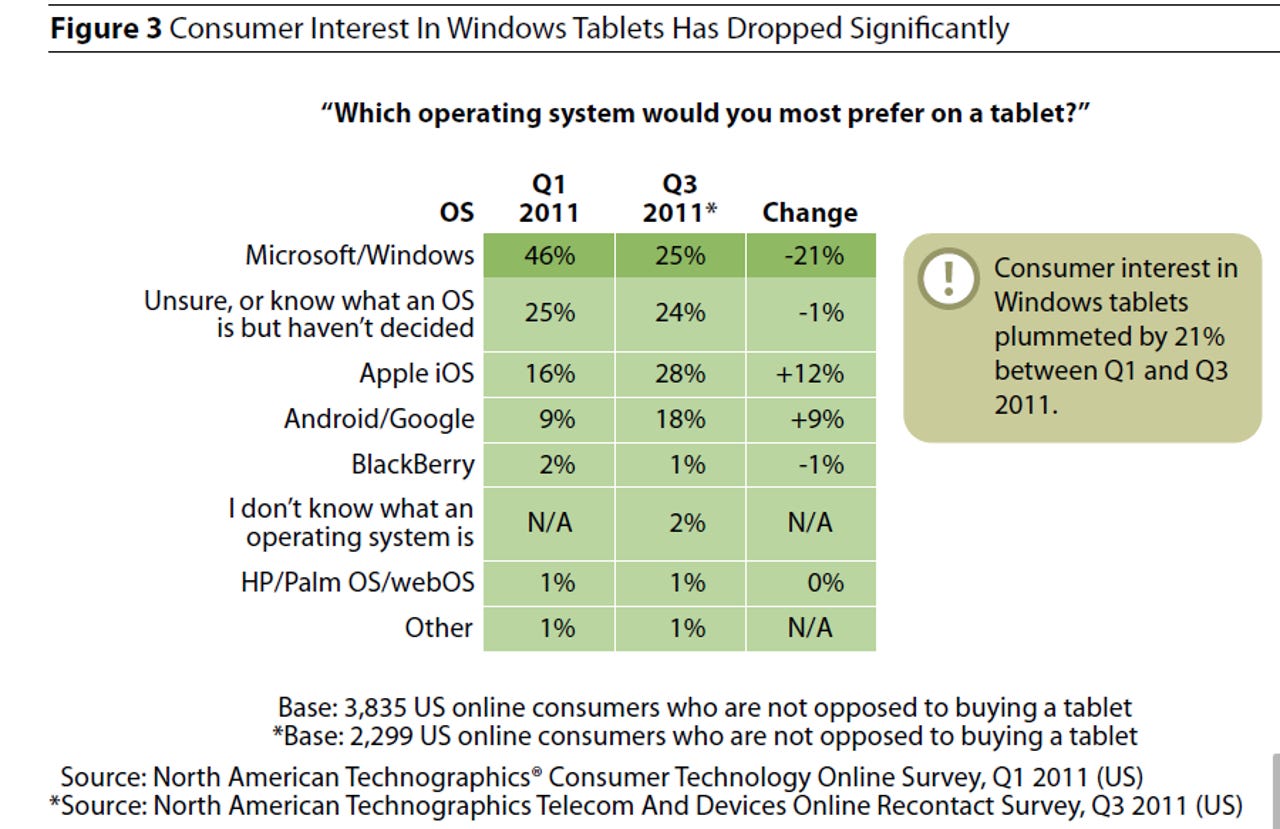Microsoft's tablet prospects: Caught in middle of Amazon, Apple?

News that interest in Microsoft's tablets has declined from the first quarter indicates that the software giant's crawl to the market may bit the company, but the bigger issue may be pricing.
As noted by Mary Jo Foley, 46 percent of consumers were considering a Microsoft Windows tablet in the first quarter largely on a bet that some device would emerge. Today, consumer interest is 25 percent. In other words, Microsoft just isn't viewed as a tablet player.
On the surface, Forrester's findings aren't all that surprising. Microsoft has largely been a tablet no-show. Meanwhile, Microsoft could create a great device and interest could pop. The overall takeaway is that many folks are tired of waiting around for a Microsoft tablet.
Also see: Great Debate: Kindle Fire vs. iPad: Which one should you buy?

Just a few months ago, Microsoft's "fifth-mover" strategy in the tablet market looked better. Microsoft held back as numerous Android tablets flopped. No one could touch Apple's iPad and No. 2 was wide open.
Now that tablet equation has changed a good bit. Why? Amazon's Kindle Fire. At $199, the Fire will garner interest and probably a bunch of sales. Apple's iPad will chug along at a higher price point. Caught in the middle are tablets such as RIM's PlayBook and Samsung's Galaxy Tab.
Add it up and Microsoft's biggest issue with its tablet will revolve around pricing. Will Windows 8 tablets be at a high-end price point---$499 and up---or low-end at $199? Or will Windows tablets go for the uncomfortable middle ground, which has proven to be a graveyard for alleged iPad killers?
In other words, Microsoft needs more than just interest to get into the tablet game. It will need some unique feature---Office integration is an obvious choice---as well as a real product/price strategy. Microsoft is so late to the game that it won't have much of a margin for error.